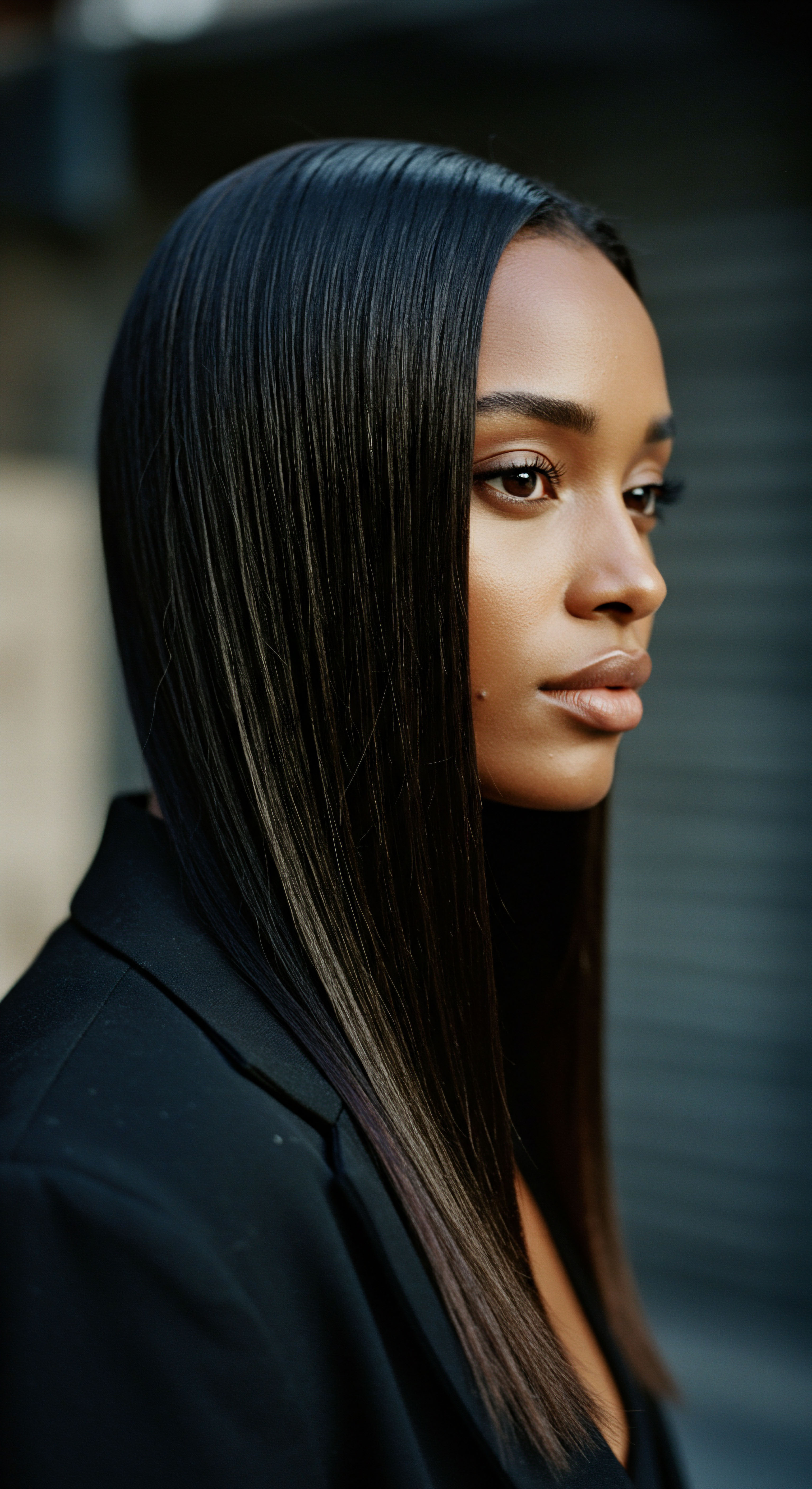
Roots
Every strand of hair, a whisper from the past, carries within its delicate structure echoes of ancient earth. It speaks of grandmothers braiding stories into resilience, of sun-drenched rituals, and of a quiet wisdom passed through generations. For those of us with textured hair, this connection feels particularly profound, a living lineage of care stretching back to the earliest moments of human ingenuity.
We often seek strength for our strands, a deeper vitality, and in this pursuit, our gaze turns to the botanicals revered by those who came before us. Can the gentle power of botanical extracts, drawn from remedies held sacred for centuries, truly reinforce our hair?
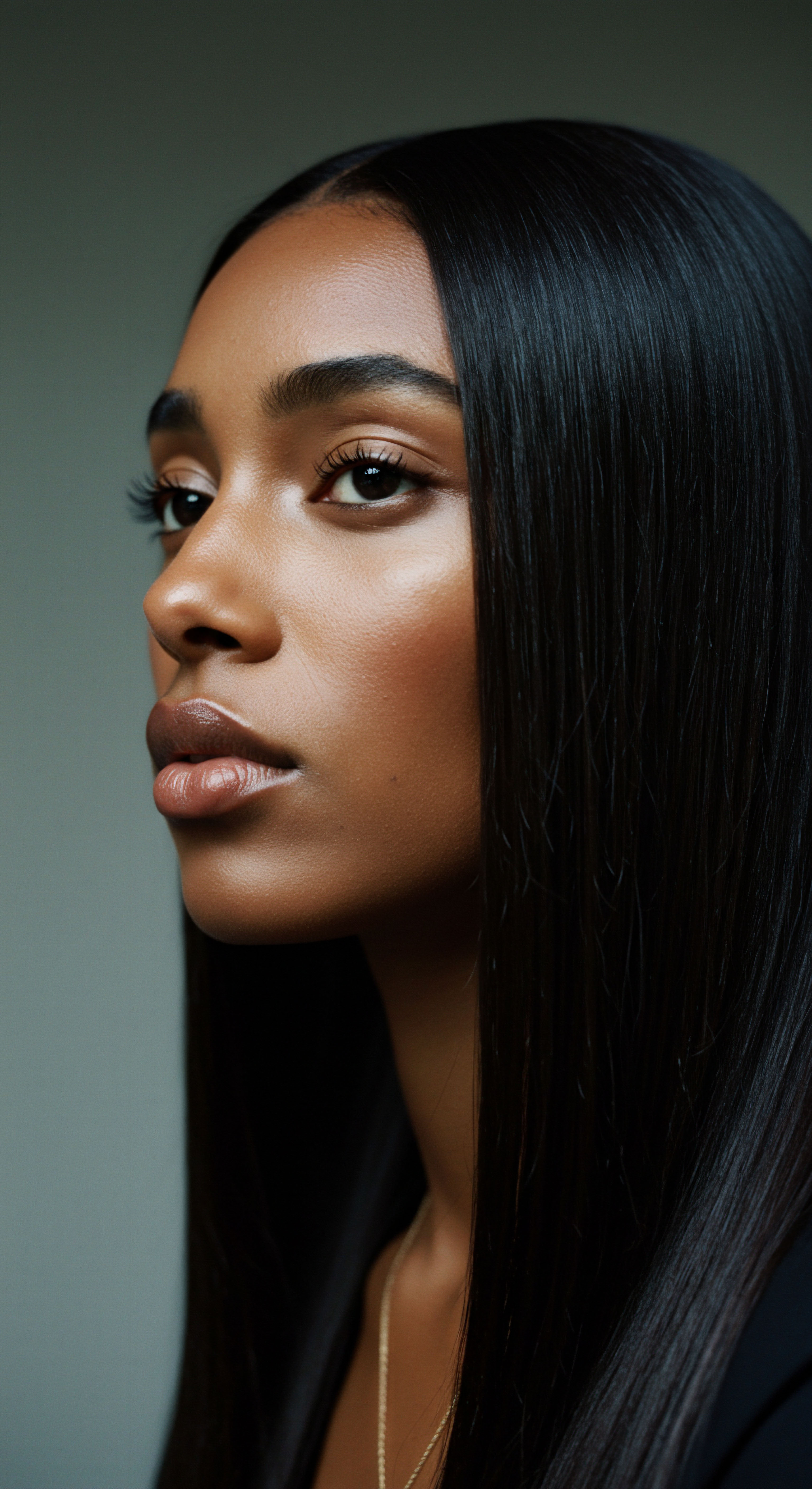
The Architecture of a Strand
To truly appreciate the potential of botanical extracts, we must first consider the remarkable construction of a single hair strand. Each hair emerges from a follicle, a tiny organ nestled within the scalp. The visible portion, the hair shaft, is primarily composed of a protein called Keratin. This fibrous protein, rich in sulfur-containing amino acids, forms the robust framework that provides hair its strength, elasticity, and overall structure.
Beneath the outer cuticle, a protective layer of overlapping cells, lies the cortex, which contributes the majority of the hair shaft’s mass and houses its pigment. The innermost layer, the medulla, is not always present in all hair types, particularly finer strands. When environmental stressors, heat styling, or chemical treatments compromise these layers, the hair can become brittle, prone to breakage, and lose its natural vibrancy. This is where the wisdom of botanicals, with their diverse chemical compositions, steps forward.
Hair’s strength is a direct reflection of its inner structure, a delicate balance susceptible to daily challenges.
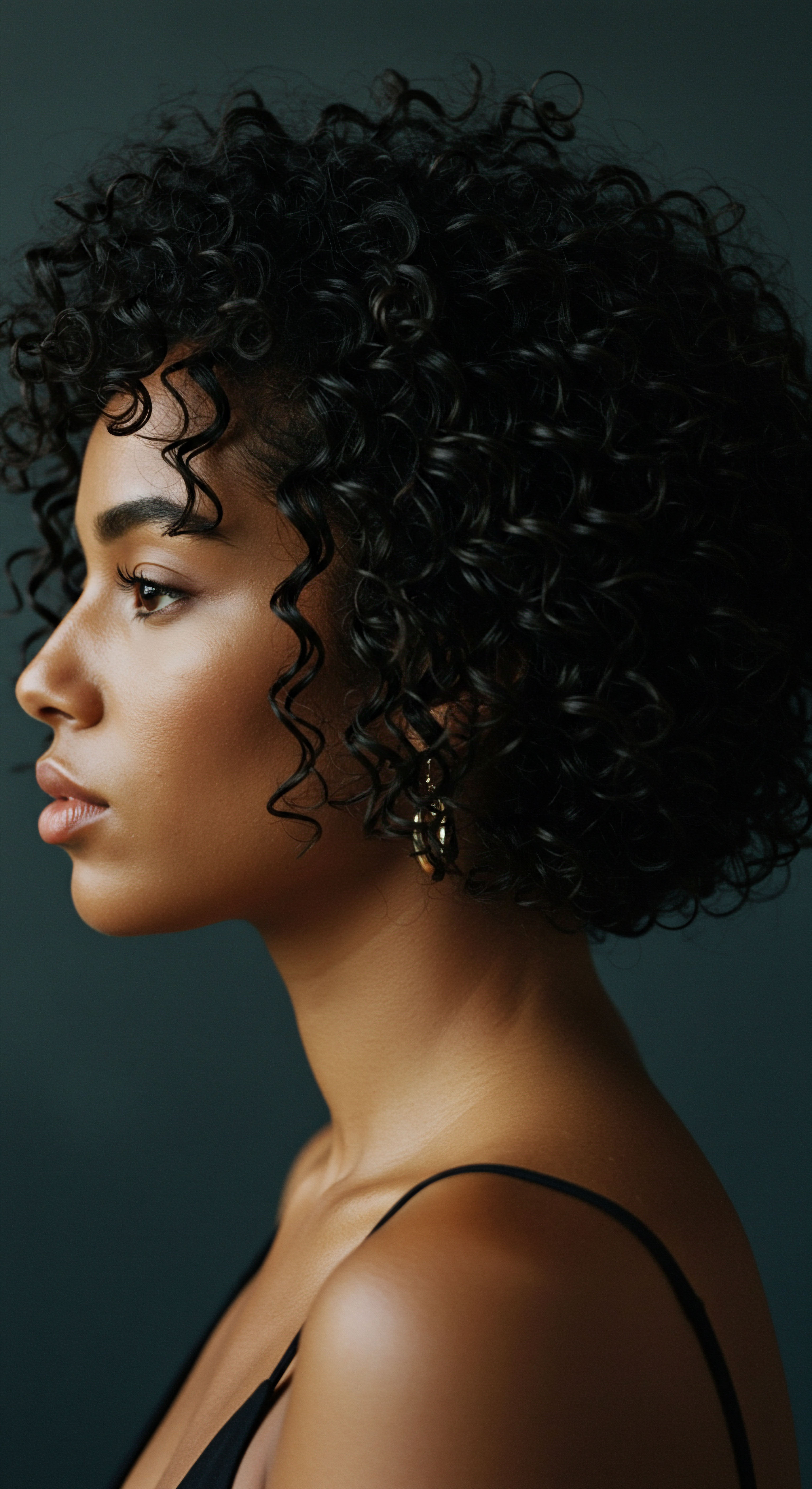
Ancient Wisdom and Modern Science
Across continents and through millennia, diverse cultures independently discovered and applied the strengthening properties of plants to their hair. From the Nile’s banks to the Himalayan foothills, botanical remedies formed the bedrock of hair care. The Egyptians, for instance, employed Castor Oil for its moisturizing and strengthening properties, often blending it with honey and other herbs.
In India, Ayurveda, an ancient system of medicine, has long emphasized natural ingredients like Amla (Indian gooseberry), Bhringraj, and Coconut Oil to nourish the scalp and strengthen hair. The Yao women of Huangluo village in China, celebrated for their exceptionally long hair, attribute its health and length to regular rinses with Rice Water, a practice rich in vitamins, minerals, and antioxidants.
These historical practices, once anecdotal, are increasingly finding validation in contemporary scientific inquiry. Researchers now scrutinize the complex phytochemicals within these plants, seeking to understand their mechanisms of action at a cellular and molecular level. The convergence of traditional knowledge and scientific rigor offers a compelling perspective on the enduring power of nature’s offerings for hair vitality.
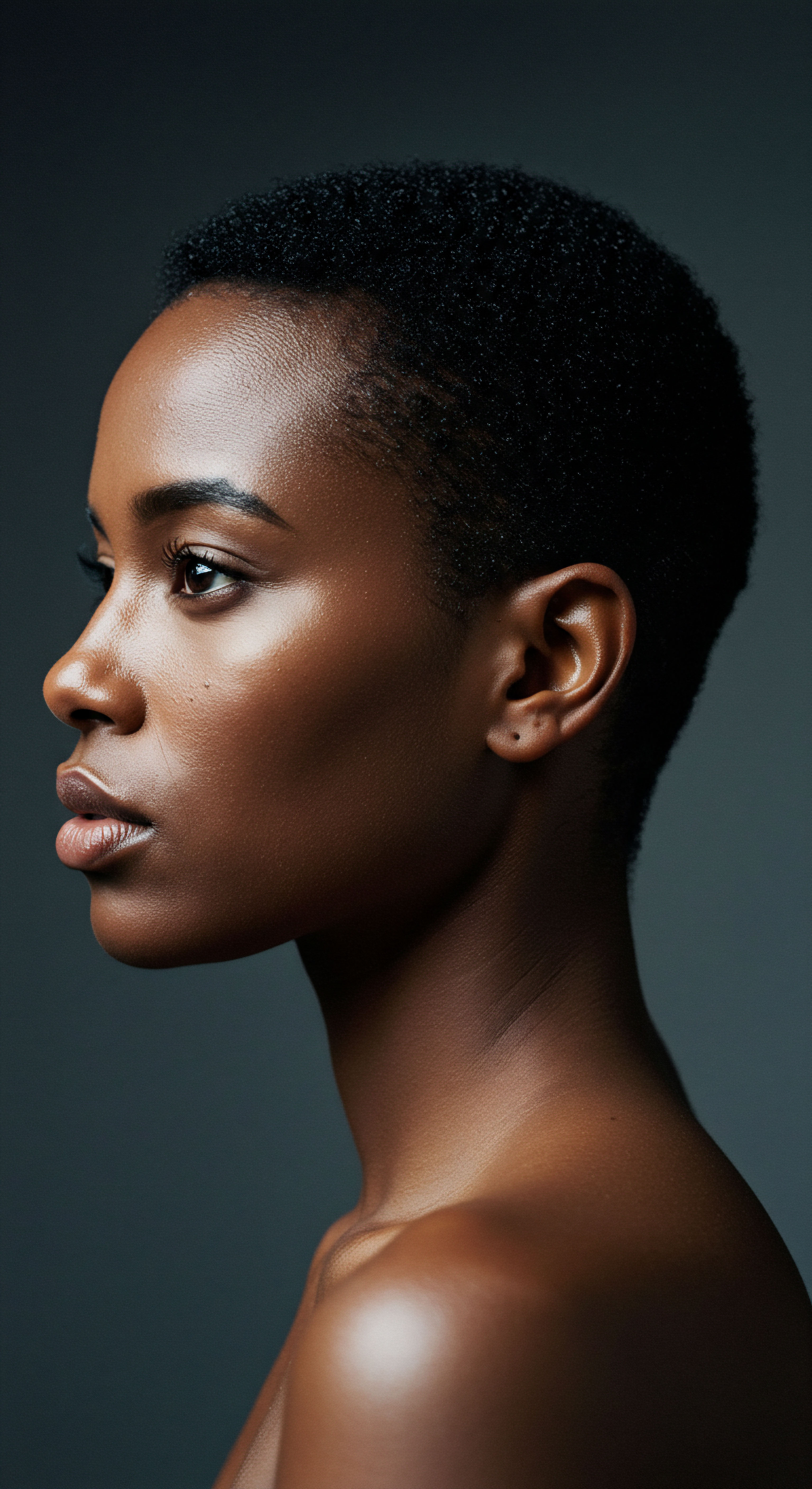
What Constitutes Hair Strength at a Microscopic Level?
Hair strength is not a singular quality; rather, it is a sum of several interconnected properties. These include tensile strength, the ability to withstand stretching without breaking; elasticity, its capacity to return to its original shape after stretching; and resistance to external aggressors like heat, UV radiation, and chemical exposure. At a microscopic level, these properties are determined by the integrity of the keratin bundles within the cortex and the protective seal of the cuticle. When the cuticle is lifted or damaged, the inner cortex becomes vulnerable, leading to moisture loss and structural weakening.
Botanical extracts often possess compounds that can influence these factors. Some contain amino acids or peptides that mimic the building blocks of keratin, potentially helping to reinforce the hair fiber. Others offer a wealth of antioxidants, which combat oxidative stress that can degrade hair proteins and lipids. Still others may improve scalp circulation, ensuring that hair follicles receive the necessary nutrients for robust growth and maintenance.
| Hair Component Cuticle |
| Primary Function Outermost protective layer, regulates moisture. |
| How Botanicals May Influence Strength Botanical oils and extracts can smooth cuticle scales, reducing friction and moisture loss. |
| Hair Component Cortex |
| Primary Function Main structural component, provides strength and elasticity. |
| How Botanicals May Influence Strength Plant-derived proteins and amino acids may help reinforce keratin structure. |
| Hair Component Medulla |
| Primary Function Innermost core, not always present. |
| How Botanicals May Influence Strength Indirectly supported by overall hair health improvements from botanicals. |
| Hair Component Hair Follicle |
| Primary Function Root structure, where hair growth begins. |
| How Botanicals May Influence Strength Extracts can improve scalp circulation, delivering nutrients for follicle health. |
| Hair Component Botanical ingredients contribute to hair resilience by supporting its fundamental architecture from the follicle to the tip. |
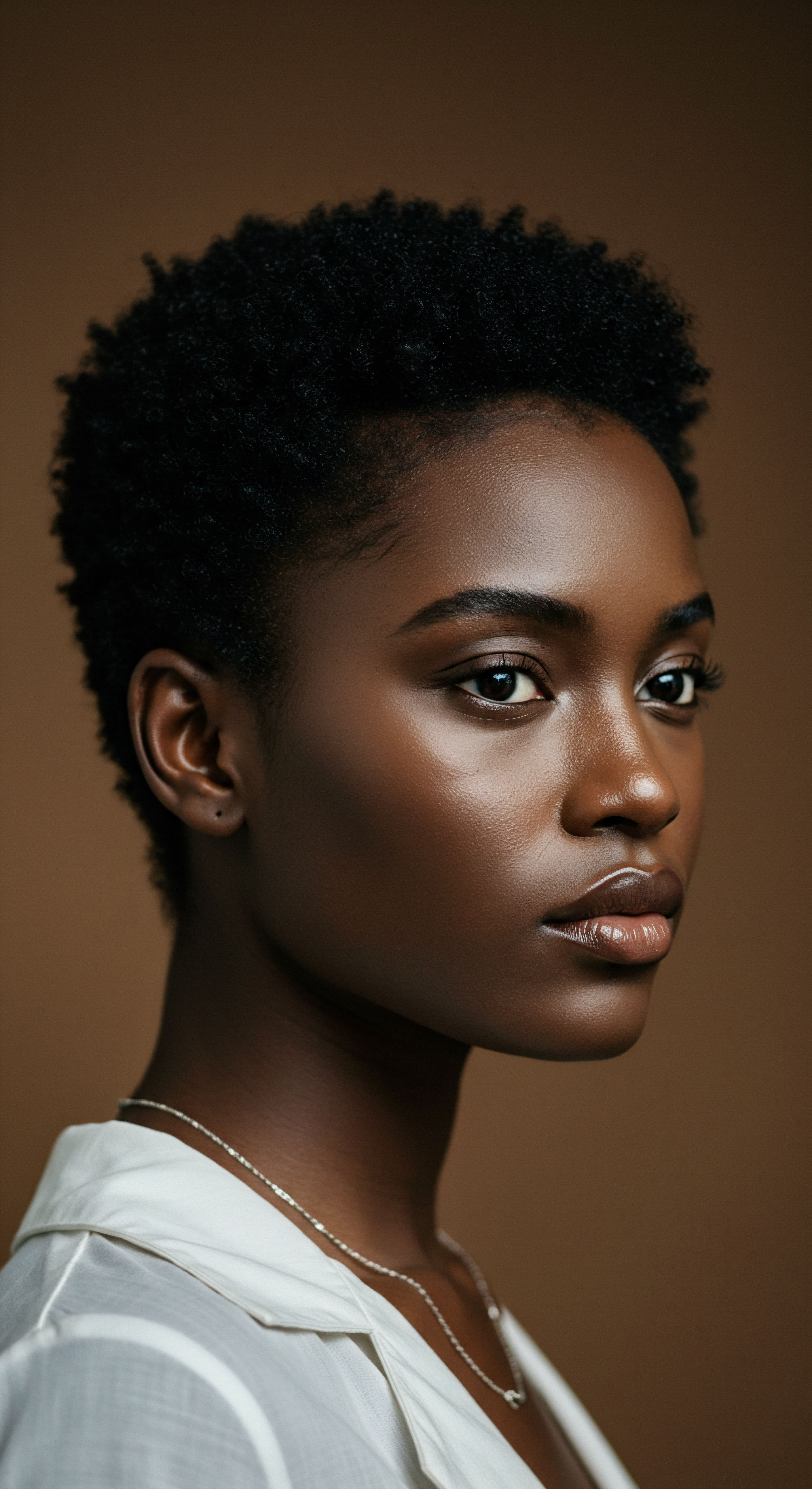
Ritual
With a deeper sense of our hair’s elemental composition and its ties to enduring practices, we move now from understanding its very being to the thoughtful application of care. This transition feels akin to stepping into a quiet space of practical wisdom, where daily or periodic practices shape the very vitality of our strands. How do we translate the ancient reverence for botanical life into tangible, beneficial actions for our hair today? The answer lies in the mindful construction of ritual, where plant extracts play a central, supportive role.
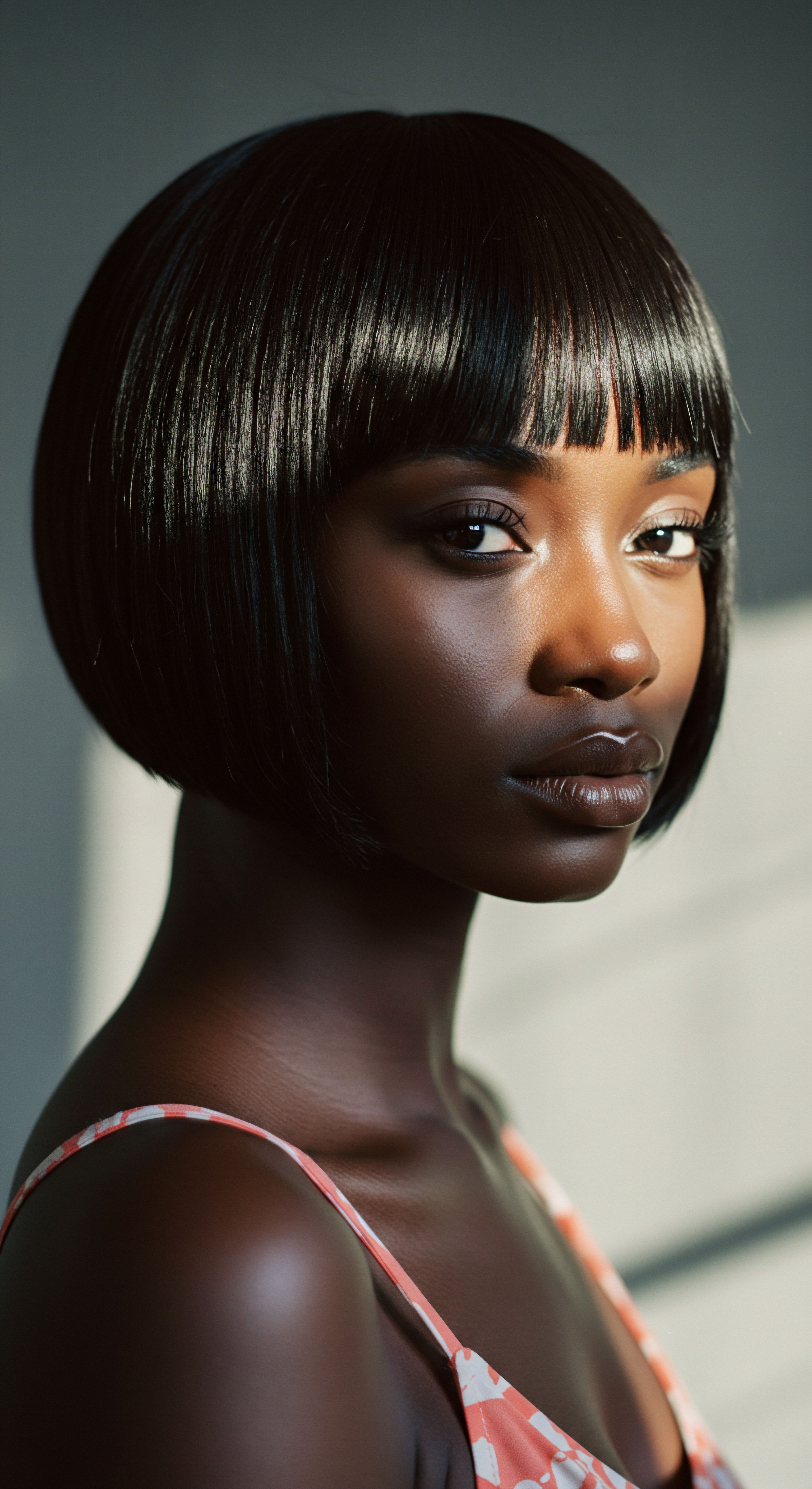
Crafting a Regimen with Plant Power
A regimen built upon botanical extracts is not merely a collection of products; it is a conscious engagement with the restorative capacities of nature. It begins with selecting extracts known for their fortifying properties and integrating them into a consistent routine. This often involves a blend of topical applications, such as oils, masks, and rinses, that work in concert to address various aspects of hair health.
For centuries, the application of botanical oils, warmed and massaged into the scalp, has been a cornerstone of traditional hair care. This practice not only distributes beneficial compounds but also stimulates microcirculation, encouraging nutrient delivery to the hair follicles. Oils like Coconut Oil, rich in fatty acids, can penetrate the hair shaft, reducing protein loss and providing deep moisture. Other oils, such as Argan and Jojoba, mimic the scalp’s natural lipids, helping to seal in hydration without weighing down strands.
The careful selection and consistent application of botanical extracts can transform hair care into a truly nurturing ritual.
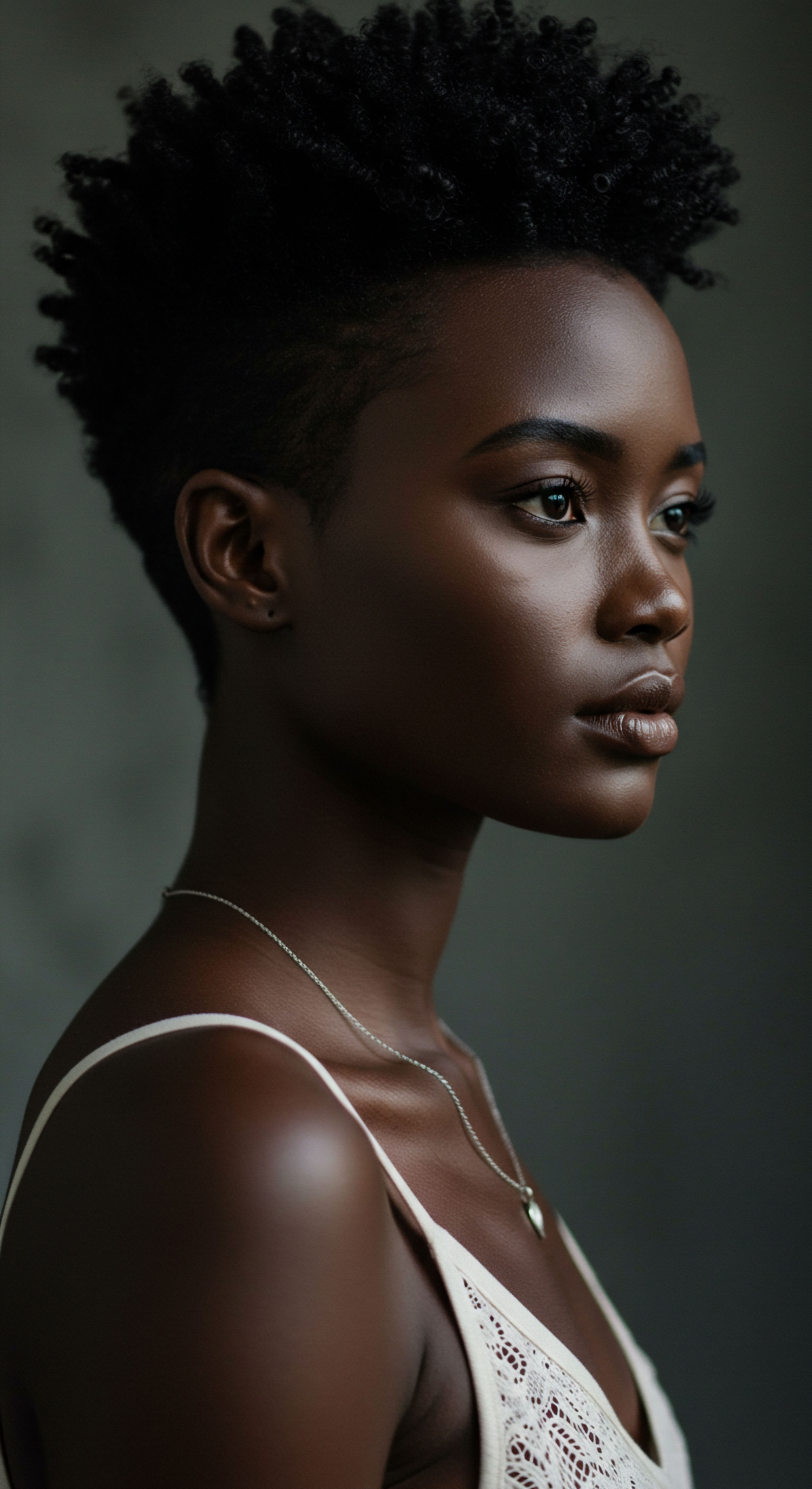
The Role of Phytochemicals in Hair Resilience
The efficacy of botanical extracts stems from their diverse array of Phytochemicals – natural compounds that confer protective or beneficial properties to the plants themselves. These compounds include antioxidants, anti-inflammatory agents, and even those that can influence hormonal pathways related to hair growth.
- Flavonoids ❉ Present in many fruits, vegetables, and teas, flavonoids are potent antioxidants that shield hair follicles from oxidative stress, a contributor to hair damage and thinning.
- Terpenes and Terpenoids ❉ Found in essential oils, these compounds can stimulate scalp circulation and possess anti-inflammatory qualities, promoting a healthier environment for hair growth.
- Sulfur-Containing Compounds ❉ These are crucial for keratin structure. Extracts containing such compounds can help reinforce the hair’s natural protein framework.
Consider the humble Rosemary. Its extract is celebrated for stimulating hair follicles and enhancing scalp circulation. Studies suggest that rosemary oil can rival conventional treatments in promoting hair growth, while also providing antioxidant and anti-inflammatory benefits to the scalp. This makes it a valuable addition to any hair strengthening regimen, particularly for those with textured hair seeking to support growth and reduce breakage.
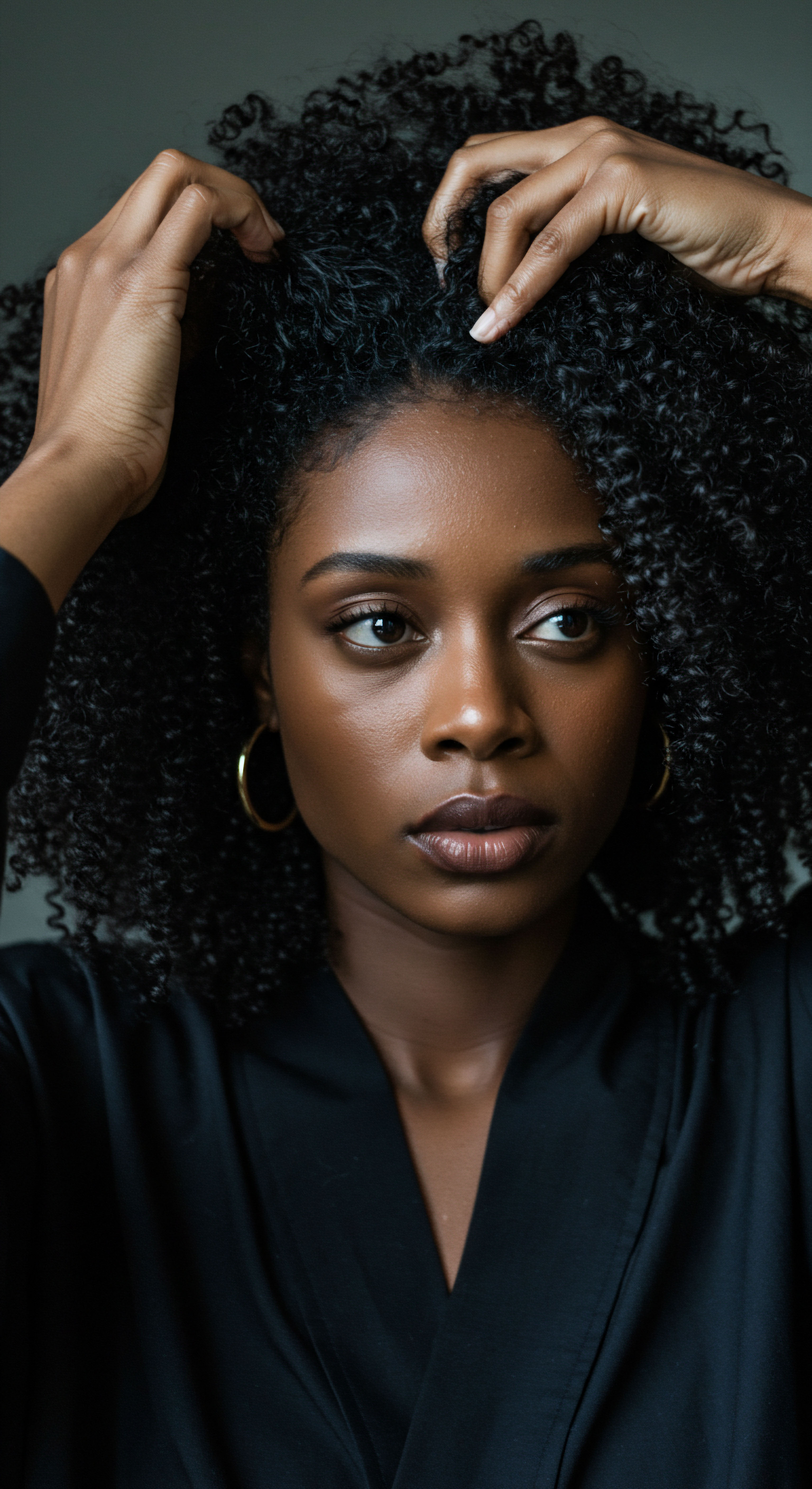
Can Consistent Botanical Application Change Hair Over Time?
The concept of hair transformation through consistent botanical application finds grounding in the cumulative effects of these plant compounds on scalp health and hair fiber integrity. Just as a garden flourishes with steady, appropriate care, so too can hair respond to regular nourishment from botanical sources. The sustained presence of antioxidants can help mitigate daily environmental damage, while continuous scalp stimulation supports consistent nutrient flow to the follicles. Over time, this dedicated attention can lead to visible improvements in hair texture, strength, and overall vitality.
For instance, traditional practices often involve weekly or bi-weekly hair masks featuring ingredients like Fenugreek Seeds, known for their protein and iron content, which are vital for hair growth. When soaked and ground into a paste, fenugreek can be applied to the scalp and hair, providing a concentrated dose of fortifying nutrients. Similarly, Hibiscus, rich in amino acids, is believed to nourish hair and help prevent breakage, often incorporated into oils or rinses. These regular applications work to build hair resilience, layer by layer, strand by strand.
| Botanical Extract Amla (Indian Gooseberry) |
| Traditional Use Nourishing scalp, preventing premature graying. |
| Modern Application for Strength Antioxidant protection, vitamin C source for collagen support. |
| Botanical Extract Brahmi (Bacopa Monnieri) |
| Traditional Use Scalp calming, blood circulation improvement. |
| Modern Application for Strength Strengthening hair follicles, promoting growth. |
| Botanical Extract Fenugreek |
| Traditional Use Hair growth, thickness, combating hair fall. |
| Modern Application for Strength Protein and iron supply, reinforcing hair structure. |
| Botanical Extract Rosemary |
| Traditional Use Stimulating growth, improving scalp health. |
| Modern Application for Strength Enhancing circulation, antioxidant defense for follicles. |
| Botanical Extract Plant Keratin |
| Traditional Use Modern innovation mimicking animal keratin. |
| Modern Application for Strength Repairing damaged strands, smoothing cuticle, improving elasticity. |
| Botanical Extract Many botanical extracts, rooted in ancient practices, offer tangible benefits for contemporary hair strengthening routines. |
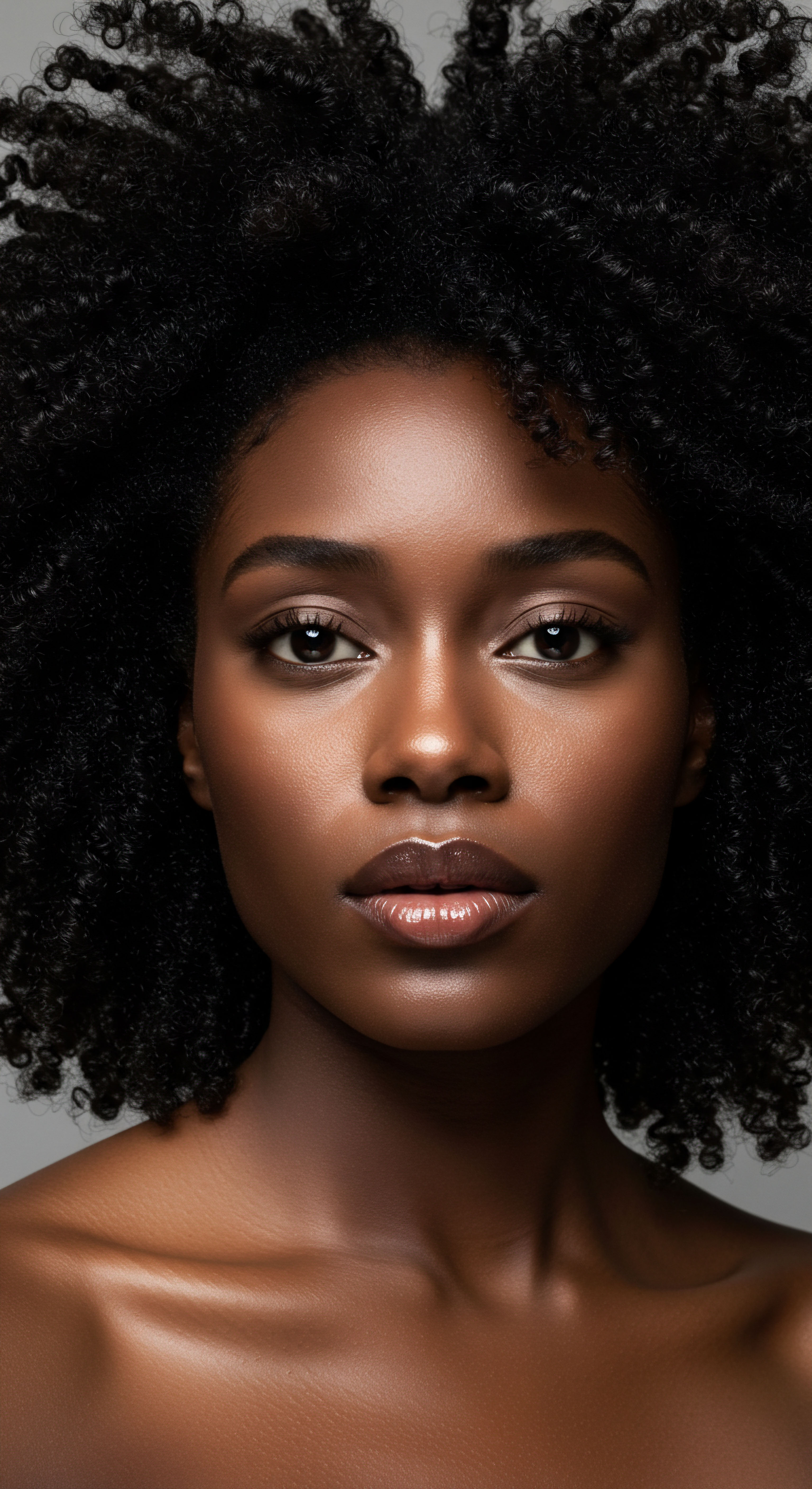
Relay
Having considered the fundamental architecture of hair and the mindful practices that lend it strength, we now turn to a more sophisticated examination, one that intertwines deep scientific inquiry with the profound cultural tapestries from which these remedies arose. The query, “Can botanical extracts from ancient remedies truly strengthen hair?”, reveals layers of complexity that demand a nuanced understanding, drawing from biological mechanisms, historical context, and the subtle interplay of various plant compounds. This exploration transcends surface-level discussions, inviting us into a space where modern research validates, and sometimes reinterprets, ancestral wisdom.
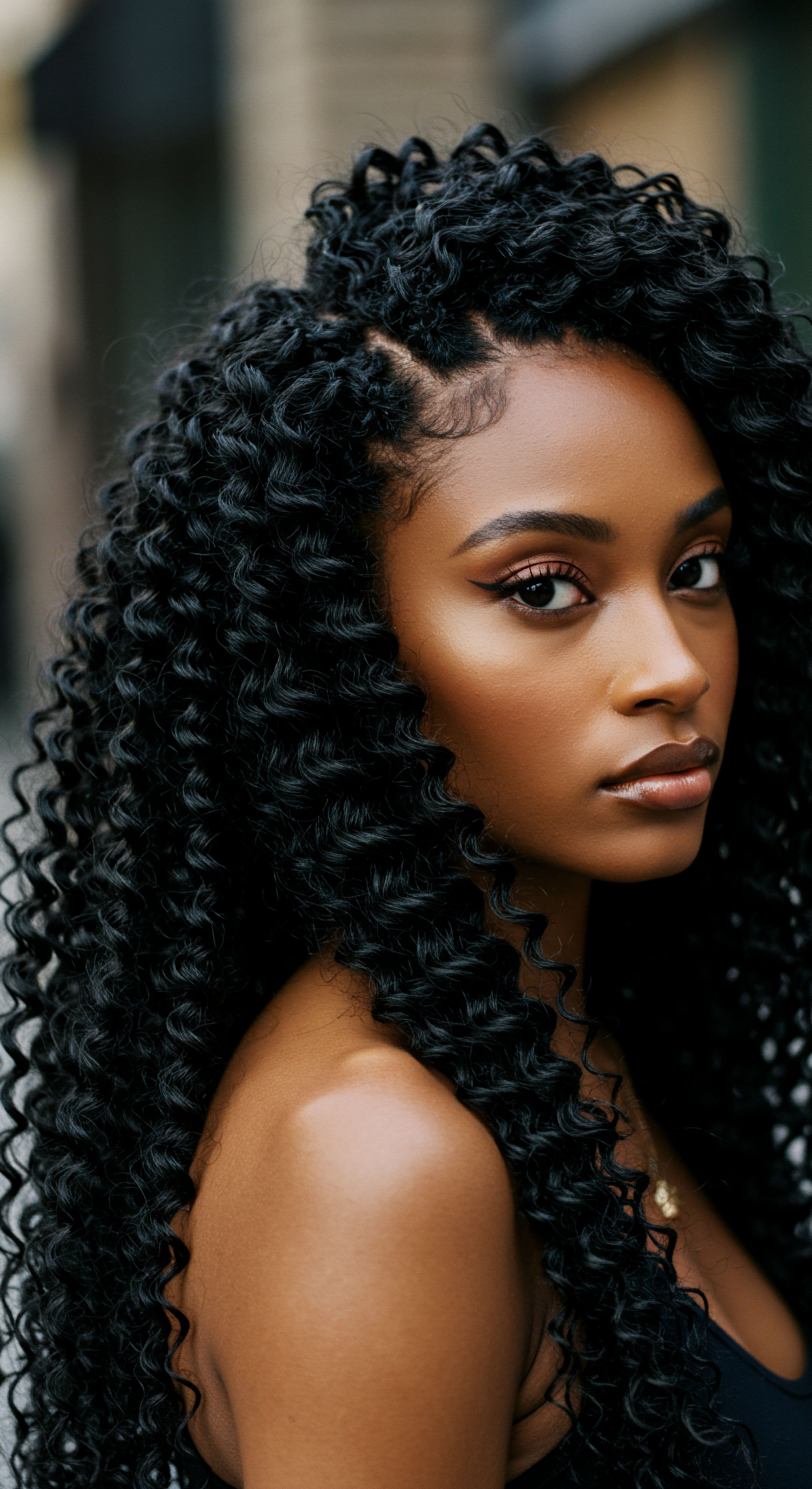
The Biochemical Symphony of Plant Compounds
The efficacy of botanical extracts for hair strengthening extends beyond simple nourishment; it lies in the intricate biochemical interactions of their constituent compounds with the hair follicle and scalp environment. These interactions can influence cellular pathways, reduce inflammation, and protect against environmental damage, all contributing to a more resilient hair fiber. For instance, plant-derived Phytochemicals, including polyphenols, flavonoids, and terpenes, are recognized for their antioxidant and anti-inflammatory properties, which are critical for maintaining healthy hair follicles and extending the hair’s active growth phase.
One fascinating example of this intricate interplay comes from the realm of adaptogenic herbs, often revered in Ayurvedic and Traditional Chinese Medicine. Consider Bacopa Monnieri, commonly known as Brahmi. While widely celebrated for its cognitive-enhancing properties, its potential for hair health presents a compelling, if less universally acknowledged, dimension.
Research suggests that Bacopa monnieri contains alkaloids that can interact with hair shaft proteins, potentially creating a stronger, thicker hair strand. Moreover, its adaptogenic qualities may indirectly support hair health by alleviating stress, a known contributor to hair loss.

Does the Adaptogenic Effect of Bacopa Monnieri Truly Strengthen Hair from Within?
The proposition that Bacopa monnieri directly strengthens hair through its adaptogenic effects is a subject of ongoing scientific discourse, offering a compelling example of how ancient remedies invite modern scrutiny. While direct clinical trials specifically measuring hair shaft strengthening due to Bacopa’s adaptogenic properties in humans are still accumulating, the indirect pathways are increasingly understood. Oxidative stress and chronic inflammation are significant factors contributing to hair follicle damage and premature hair loss. Bacopa monnieri exhibits potent antioxidant and anti-inflammatory activities.
By mitigating these cellular stressors, Bacopa creates a more conducive environment for healthy hair growth and maintenance. Furthermore, its ability to reduce stress, as an adaptogen, can lessen the impact of stress-induced hair shedding, known as telogen effluvium. This suggests a multi-pronged approach to hair vitality, where Bacopa supports the internal environment necessary for strong hair, rather than solely acting on the hair shaft itself.
A study conducted on albino rats provided an interesting data point concerning Bacopa monnieri’s potential for hair growth. In this research, various ointments were tested, and the singular herbal extract of Bacopa monnieri demonstrated the greatest increase in hair density and length among the tested formulations. While animal studies provide valuable preliminary data, direct human clinical trials specifically isolating Bacopa’s role in strengthening hair through adaptogenic pathways remain an area ripe for further exploration. This underscores the journey from traditional wisdom to empirically verified understanding, a path often winding but ultimately enriching for our comprehension of botanical power.

Beyond the Molecule Cultural Contexts of Hair Resilience
The narrative of botanical extracts for hair strength extends beyond molecular biology into the rich soil of cultural heritage. For many communities, particularly those with textured hair, hair care practices are deeply intertwined with identity, social expression, and historical continuity. In various African cultures, hair care rituals are not merely cosmetic; they are acts of self-preservation, community bonding, and spiritual connection.
Ingredients like Shea Butter, Baobab Oil, and Marula Oil, indigenous to Africa, have been used for centuries to protect, nourish, and condition hair, reflecting a profound understanding of local flora and its benefits. These botanicals provide essential lipids, antioxidants, and vitamins that help maintain the integrity of textured hair, which is often more susceptible to dryness and breakage due to its structural characteristics.
The practice of using these botanicals was often passed down through generations, embodying a wisdom that recognized the interconnectedness of scalp health, hair fiber integrity, and overall well-being. This ancestral knowledge, developed through empirical observation over centuries, offers invaluable clues for modern research into hair strengthening. The sustained use of these ingredients in traditional African hair care, even without the benefit of contemporary scientific analysis, speaks volumes about their perceived efficacy in promoting hair resilience and vitality.
The enduring wisdom of ancient remedies, now supported by scientific inquiry, reveals a compelling truth about botanical hair strengthening.
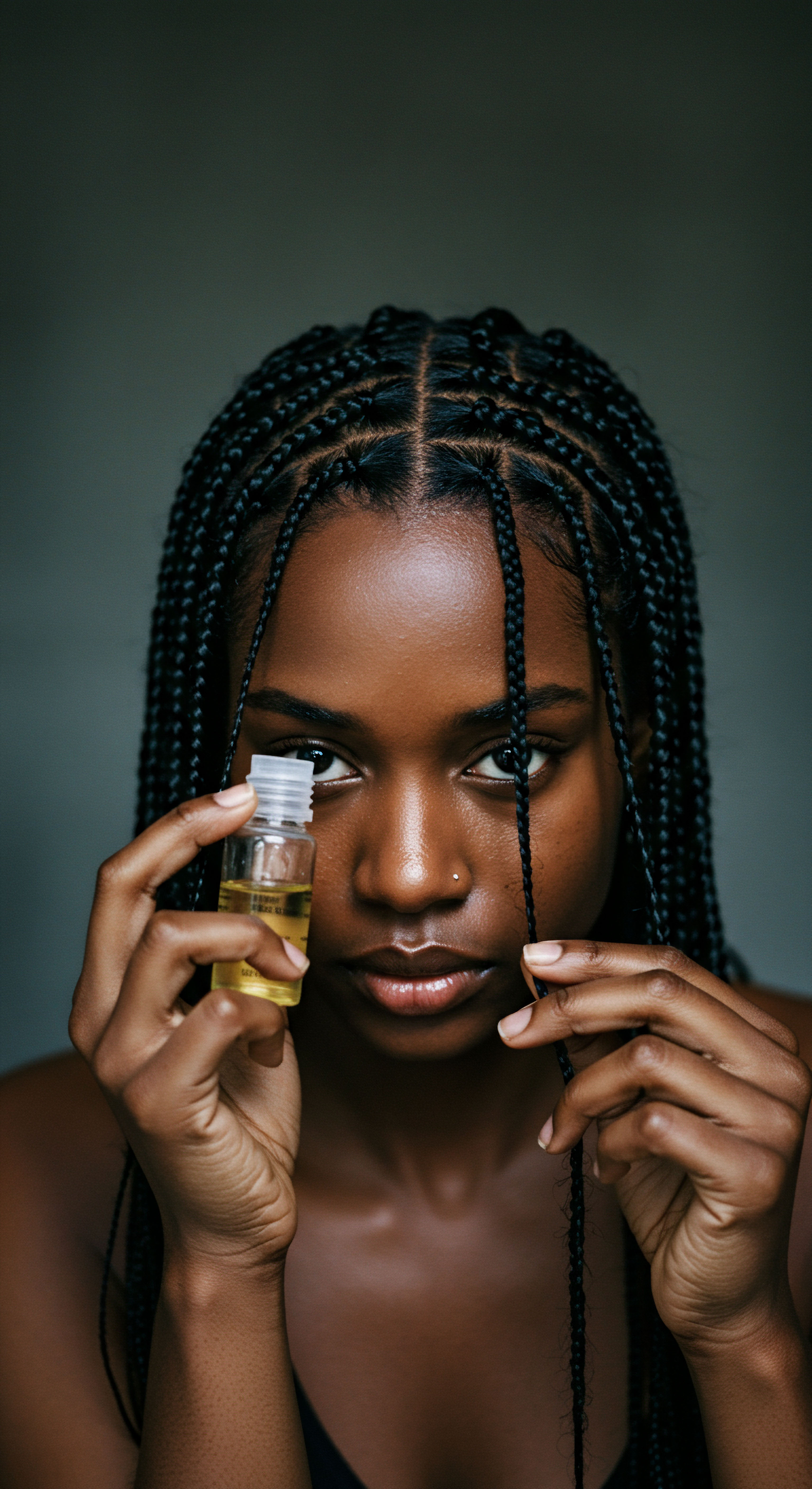
Modern Science Meets Ancient Lore
Contemporary scientific studies increasingly validate the long-held beliefs surrounding these ancient remedies. For instance, research into plant-derived Keratin, often sourced from wheat, soy, or corn, shows its ability to mimic the structural composition of human hair keratin. When hydrolyzed, these plant proteins can penetrate the hair cuticle, helping to repair damaged strands, fill in gaps, and restore elasticity and shine. This represents a significant advancement, offering a vegan and cruelty-free alternative to animal-derived keratin, while still delivering comparable strengthening benefits.
A review examining plant extracts for hair growth highlights that many promote cell survival and proliferation of dermal papilla cells, crucial for hair follicle activity. They can also prolong the anagen (active growth) phase of the hair cycle and alleviate oxidative stress and inflammation, all factors that contribute to stronger, healthier hair. The convergence of traditional wisdom with modern analytical techniques is painting a comprehensive picture of how botanical extracts truly strengthen hair, not just by superficial coating, but by influencing the very biological processes that underpin hair health.
The research surrounding the efficacy of botanical extracts for hair strengthening is robust, albeit with varying degrees of evidence for specific plants and mechanisms. For example, a comprehensive review of plant extracts for hair growth indicated that several plant extracts have been verified in clinical trials to promote hair growth. These studies often identify specific phytochemicals, such as phenolic compounds, terpenes, and fatty acids, as the active agents.
These compounds are associated with promoting cell survival, cell proliferation, and regulating the hair cycle, leading to the extension of the anagen phase. This scientific corroboration of ancient practices provides a solid foundation for understanding the potential of botanical extracts to contribute to hair strength and resilience.
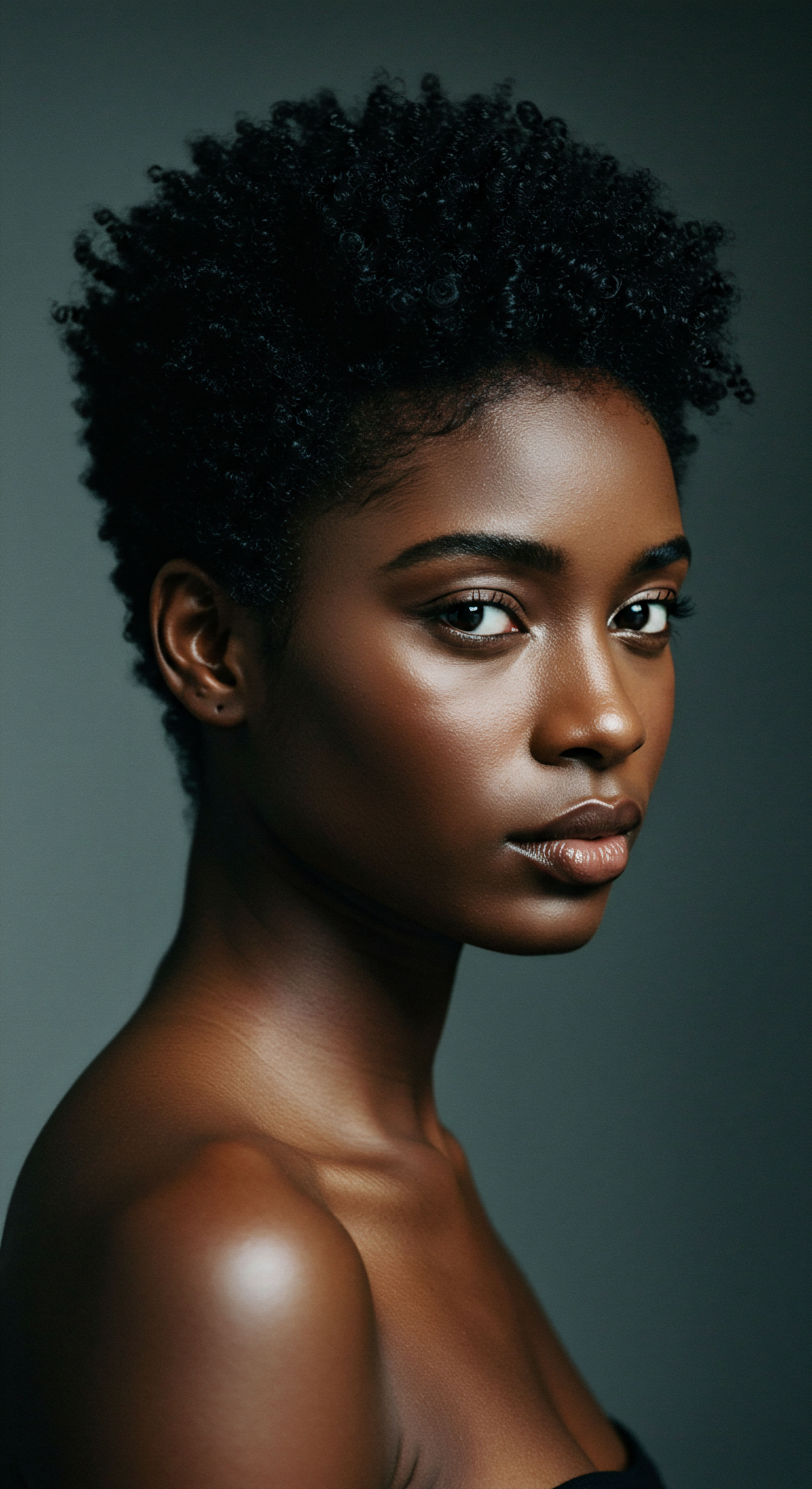
Reflection
As our exploration concludes, the whispers of ancient wisdom and the clear voice of modern science converge, offering a compelling answer to our initial query. Botanical extracts, far from being mere folklore, hold genuine potential for strengthening hair. Their power lies not in a single miraculous compound, but in a complex interplay of phytochemicals that can soothe the scalp, nourish follicles, and reinforce the very structure of the hair strand.
The journey from traditional remedies to scientifically validated applications reminds us that the earth holds profound secrets for our well-being, waiting to be rediscovered and understood with respectful curiosity. For those with textured hair, this connection to botanical heritage offers a particularly meaningful path to vibrant, resilient strands, a gentle affirmation of beauty rooted deeply in the past and flourishing vibrantly in the present.

References
- Choi, J. Y. Boo, M. Y. & Boo, Y. C. (2024). Can Plant Extracts Help Prevent Hair Loss or Promote Hair Growth? A Review Comparing Their Therapeutic Efficacies, Phytochemical Components, and Modulatory Targets. Molecules, 29(10), 2244.
- IdealofMeD. (2024, February 19). Phytonutrients ❉ Benefits, Sources, & Recent Discoveries .
- Bulk Naturals. Plant Keratin ❉ Conditioning, Moisturizing .
- Healthline. (2024, August 19). Hair Care Secrets of the Past ❉ What Our Ancestors Used for Healthy Hair .
- Begum, R. & Ahmed, M. (2023). Comparative Analysis of Botanical Extracts in the Treatment of Hair Loss ❉ Efficacy and Safety. Journal of Clinical and Experimental Dermatology, 8(2), 1-8.
- Caresupp.in. (2022, November 24). What is Plant Keratin? Information & uses .
- Medical Channel Asia. (2024, August 8). Is “Hair Training” Real or a Myth? .
- Learn Canyon. (2025, May 5). The Benefits of Botanical Extracts in Hair and Scalp Products ❉ What You Need to Know .
- Park, J. H. et al. (2018). Methanol Extract of Peach Kernel Induces Human Hair Follicle Dermal Papilla Cell Proliferation via the Extracellular Signal-Regulated Kinase Signaling Pathway. Indian Journal of Pharmaceutical Sciences, 80(2), 256-263.
- Home Remedies for Hair. (2024, October 9). 3 Ancient Secrets for Healthy Hair | 100% Natural Homemade Oils, Shampoo & Hair Mask .
- Bioscience Institute. XHAIR – Exosomes cosmetics for hair loss .
- Bellevue Reporter. (2025, February 6). Hairprin ❉ Is This Natural Hair Growth Solution Really Backed by Science? .
- Choi, J. Y. Boo, M. Y. & Boo, Y. C. (2024, May 13). Botanical booster ❉ Effective plant molecules for enhancing hair growth. ResearchGate .
- Healthline. (2017, October 23). 19 Herbal Remedies for Hair Growth .
- Choi, J. Y. Boo, M. Y. & Boo, Y. C. (2024, May 13). Can Plant Extracts Help Prevent Hair Loss or Promote Hair Growth? A Review Comparing Their Therapeutic Efficacies, Phytochemical Components, and Modulatory Targets. PubMed .
- Md Yasin, A. et al. (2023). Natural alternatives from your garden for hair care ❉ Revisiting the benefits of tropical herbs. Journal of Functional Foods, 108, 105740.
- Kera Mane. (2024, November 22). Natural vs. Chemical Ingredients in Keratin Treatments ❉ Comparing Efficacy .
- Kim, J. S. et al. (2025, May 14). Enhancing hair growth through phytochemicals ❉ mechanisms, supporting evidence, and future directions. Oxford Academic .
- Avimee Herbal. (2024, April 24). Ayurvedic Herbs for Hair Growth ❉ Nature’s Secret .
- Black African Organics. Mzansi’s Award Winning Natural Beauty and Wellness Brand .
- Reborn Paris. (2024, March 18). Keratin Treatment ❉ the ideal treatment to repair damaged hair .
- Kumar, A. & Sharma, V. (2018). In Quest of the Mysterious Holistic Vedic Herb Bacopa monnieri (L.) Pennell. Pharmacognosy Research, 10(2), 101-107.
- Healthline. (2021, May 25). Indian Home Remedies for Hair Growth ❉ 8 Ayurvedic Tips for Lustrous, Healthy Locks .
- Afolayan, F. I. et al. (2024). Cosmetopoeia of African Plants in Hair Treatment and Care ❉ Topical Nutrition and the Antidiabetic Connection?. MDPI, 13(1), 1-18.
- Typology. Phytokeratin (Plant Keratin) .
- Yadav, S. S. & Jain, A. K. (2021). Assessment of Nutraceutical Potential of Herbs for Promoting Hair Growth ❉ Formulation Considerations of Herbal Hair Oil. The Open Dermatology Journal, 15(1).
- Learn Canyon. (2025, April 24). Why Botanical Extracts Are Essential For Scalp Care .
- Native Extracts. Hair + Scalp .
- Evron, E. et al. (2025, January 20). Herbal Remedies for Hair Loss ❉ A Review of Efficacy and Safety. Karger Publishers .
- GSC Online Press. (2024, November 23). Phytochemicals in hair care ❉ A review of natural ingredients and their applications .
- Trüeb, R. M. et al. (2024). Hair Longevity—Evidence for a Multifactorial Holistic Approach to Managing Hair Aging Changes. MDPI, 13(5), 1-22.
- Divi. (2023, February 7). Rosemary Leaf Extract for Hair Growth ❉ Does it Work? .
- Formula Botanica. 10 of the Best Haircare Herbs for Organic Cosmetic Formulations .
- Kama Ayurveda. (2023, December 6). How To Make Hair Roots Strong Naturally? 20 Best Methods .
- Lal, V. K. & Baraik, A. (2019). Therapeutic Effects of Bacopa monnieri. International Journal of Pharmaceutical Sciences and Research, 10(3), 1001-1013.
- Saraf, S. et al. (2023). The Advancement of Herbal-Based Nanomedicine for Hair. MDPI, 12(8), 1-15.
- Stough, C. et al. (2015). Neuropharmacological Review of the Nootropic Herb Bacopa monnieri. PubMed Central, 13(4), 317-330.
- The Natural Africa. African Botanical Skincare .
- Roy, R. K. et al. (2008). Hair growth promoting activity of Eclipta alba in male albino rats. PubMed, 69(6), 1017-1020.
- Kaya Skin Clinic. (2024, November 2). Discover Brahmi Benefits for Hair ❉ Growth, Strength, and Shine .
- Singh, P. & Singh, R. (2023). A REVIEW OF HERBAL MEDICATIONS FOR THE TREATMENT OF ALOPECIA. International Journal of Ayurveda and Pharma Research, 11(Suppl 4), 5-10.
- Park, J. S. et al. (2023). Role and Mechanisms of Phytochemicals in Hair Growth and Health. PubMed Central, 12(2), 1-17.
- Gupta, M. et al. (2021). Formulation and Evaluation of Herbal Hair Tonic ❉ A Comprehensive Review. Pharmacognosy Research, 13(4), 1-10.
- From Nature With Love. African Skin and Hair Care Ingredients .
- Ekó Botanicals. African and British Botanicals .